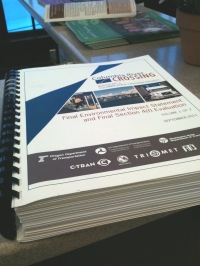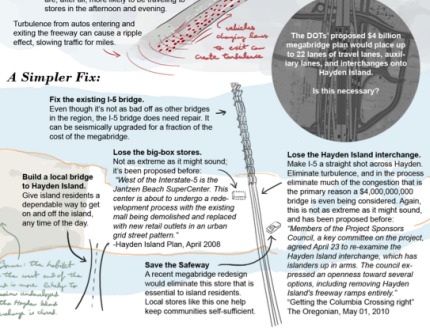Activists hope to weaken CRC ‘signal’ at hearing in Salem today
A big day at the capitol for the CRC.(Photo © J. Maus/BikePortland) A bill that would officially make it “in the state’s interest” to move forward on the I-5 freeway widening project between Oregon and Washington will be given a public hearing in Salem today. The bill, HB 2800, is being pushed by Governor Kitzhaber … Read more






